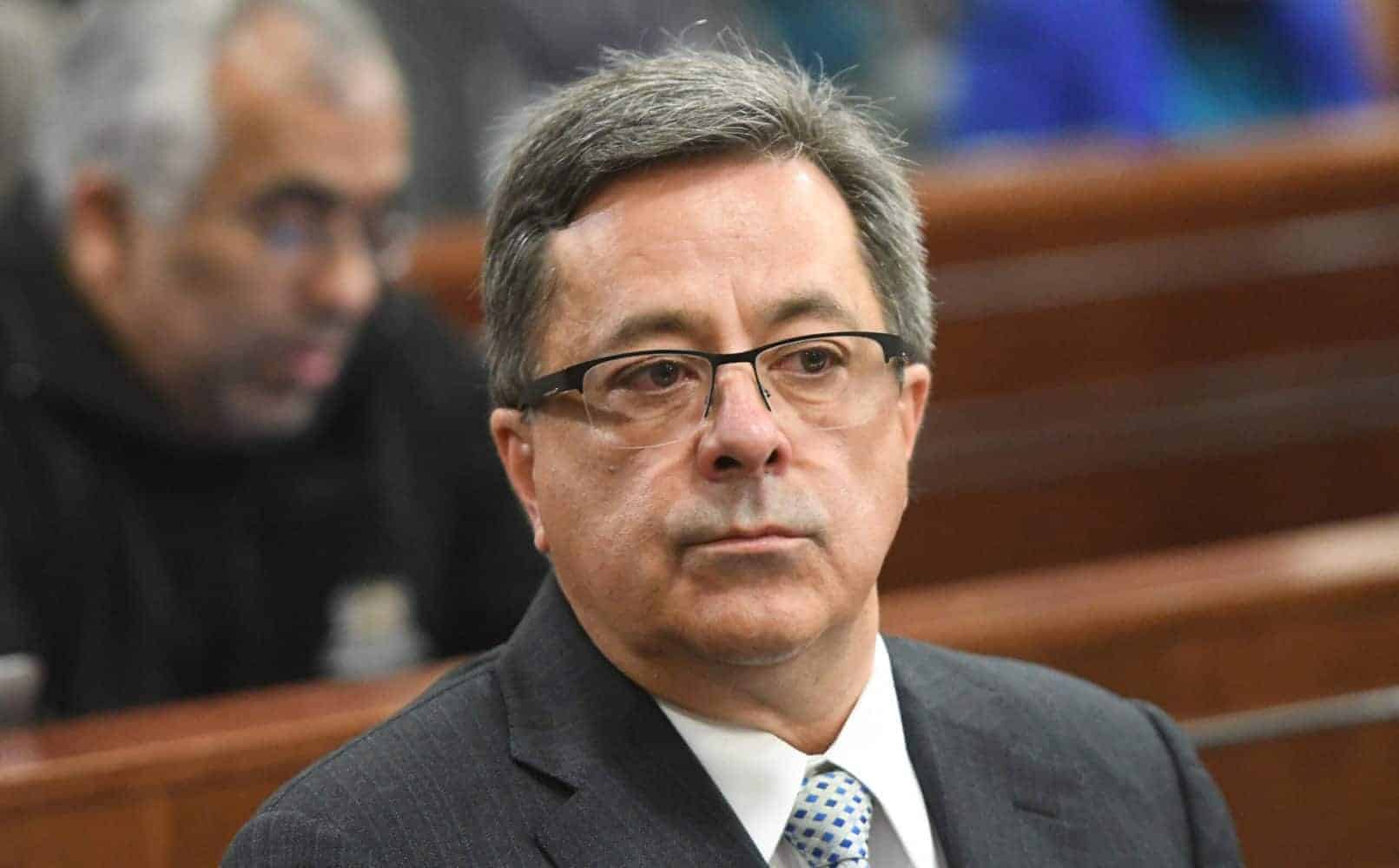The R475 million fine for Jooste for publishing false financial statements and annual reports is the biggest ever for an individual.

Former Steinhoff CEO Markus Jooste. Picture: Gallo Images / Brenton Geach
The Financial Sector Conduct Authority (FSCA) has decided to fine former Steinhoff boss Markus Jooste R475 million for publishing false, misleading, or deceptive statements about Steinhoff International Holdings Limited and Steinhoff International Holdings NV, which he knew or ought reasonably to have known were false, misleading, or deceptive, including the omission of material facts.
The FSCA made a similar finding against Steinhoff’s former finance head, Dirk Schreiber, who was sentenced to jail in Germany last year for his part in the Steinhoff debacle. He was not fined, but subjected to strict terms and conditions.
The FSCA found that Jooste and Schreiber contravened section 81(1)(a) and (b) of the Financial Markets Act. The contraventions related to Steinhoff’s annual financial statements and annual reports for the financial years from 2014 to 2016 and the first half of 2017.
Unathi Kamlana, FSCA commissioner, made the announcement on Wednesday.
The Steinhoff International securities were listed on the Johannesburg Stock Exchange (JSE) and the Frankfurt Stock Exchange (the FSE) during this period.
ALSO READ: How involved was Jooste in Steinhoff’s irregular practices?
Contravention of Financial Markets Act
Section 81(1)(a) of the FMA prohibits anyone from directly or indirectly making or publishing any false or misleading or deceptive statement. It also prohibits the promise or forecast of any material fact regarding the past or future performance of a company which has listed securities on a regulated market and which the person knows or ought to reasonably know at the time is false, misleading or deceptive.
Section 81(1)(b) of the FMA similarly prohibits such a publication if, for the reason of the omission of a material fact, the statement, promise or forecast is rendered false, misleading or deceptive.
For Jooste, the FSCA imposed an administrative penalty of R475 million for contravening section 81 of the FMA. He must pay on or before 19 April 2024. However, Alex Pascoe, head of market abuse at the FSCA, says Jooste can and has reportedly said he will appeal any decision and take it on review to high court and the Constitutional Court.
Therefore, Pascoe does not expect that he will pay the penalty anytime son. The FSCA previously imposed an administrative penalty on Jooste of R20 million for insider trading, which he also has not paid as he is taking the decision on review.
The R475 million includes a contribution of R10 million to reimburse the FSCA for reasonable costs incurred in connection with the investigation of the contravention, as well as interest at the rate of 11.75% on any unpaid portion of the administrative penalty until it is fully paid.
ALSO READ: JSE bars Steinhoff’s Markus Jooste for 20 years, fines him R15m
How the R475 million penalty was calculated
Gerhard van Deventer, divisional executive of enforcement at the FSCA, said the FSCA considered various factors, including these to arrive at the amount of the penalty:
- the need to deter similar behaviour in the market
- the amount of the losses experienced by the market
- Jooste’s level of cooperation during the investigation
- the nature, duration, extent and seriousness of the contraventions
- the extent of any financial or commercial benefit to Jooste
- previous contraventions of financial sector laws (insider trading and the contravention of the JSE’s listing requirements
- the effect of Jooste’s conduct on the financial system and financial stability
- the effect of the proposed penalty on financial stability
- the extent to which the conduct was deliberate or reckless and;
- Jooste’s submissions regarding the merits of the case against him, including his submissions regarding an appropriate penalty.
ALSO READ: First Steinhoff exec gets jail time
Why there was no penalty for Schreiber
In the case of Schreiber, Van Deventer said in terms of section 156 (1) of the Financial Sector Regulation Act the FSCA can, in exchange for someone’s cooperation in an investigation or proceedings related to conduct that contravenes that law, enter into a leniency agreement with someone.
“Due to the extent of Schreiber’s co-operation with the investigation and after considering the factors in line with section 156 (3) of the FSR Act, the FSCA was satisfied that it appropriately entered into a leniency agreement with Schreiber.”
He said in terms of the leniency agreement the FSCA, despite finding that Schreiber contravened section 81(1)(a) and (b) of the FMA, will not impose an administrative penalty on him.
ALSO READ: Markus Jooste, three others, fined R241 million for Steinhoff insider trading
Steinhoff already fined R53 million and paid it
The FSCA concluded an investigation into contraventions of the FMA by the Steinhoff Group for the relevant periods and in September 2019 imposed an administrative penalty of R1.5 billion on Steinhoff International. The FSCA remitted the penalty to R53 million in terms of section 173 of the FSR Act.
This penalty was paid before Steinhoff International became a new private Dutch holding company at the end of 2023.
Kamlana said the findings regarding Jooste and Schreiber were made as part of an ongoing investigation by the FSCA and the authority is continuing with further investigations into similar contraventions of section 81(1)(a) and (b) of the FMA by other individuals. The FSCA declined to name these individuals.
Van Deventer could not say if Jooste has the money to pay the penalty. As there is already a criminal investigation for fraud against Jooste, the results of this investigation will be added to it. If Jooste is found guilty then the penalty will be up to R50 million or 10 years imprisonment or both.
Although it seems to be a small penalty for a case of this magnitude, Kamlana reiterated that this is only the penalty for contravening one section and not for the complete case.





